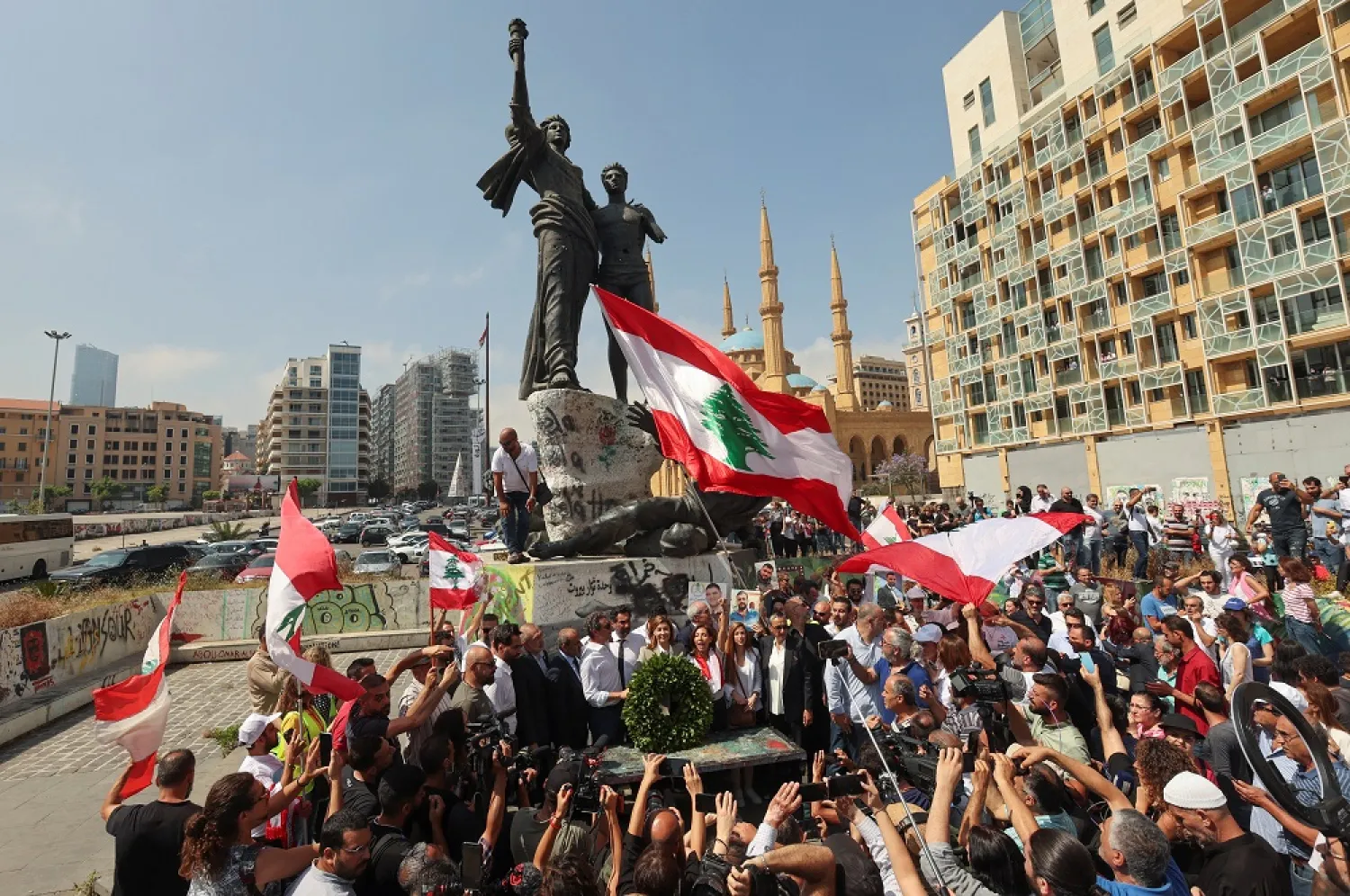Lebanon's longtime parliament speaker who has held the post for 30 years, was reelected Tuesday for a seventh four-year term with the minimum number of votes required and despite multiple crises plaguing the nation.
Still, the slim majority in favor of Nabih Berri was a reflection of a shift in public opinion in the crumbling economy on the verge of bankruptcy. His reelection was practically guaranteed - even though more than a dozen new lawmakers won seats running on a reform platform.
The new legislature is being ushered in as Lebanon remains in the grip of the worst economic and financial crisis in its modern history, rooted in decades of corruption and mismanagement by the ruling class, which has been running the country since the end of the civil war.
To most Lebanese, Berri, an 84-year-old former warlord, is a symbol of this entrenched sectarian-based political system and ruling class, which continues to hold despite rising discontent and the new reform-minded lawmakers to won seats. But as leader of the Shiite Amal movement, which is closely allied with the powerful Hezbollah, Berri is virtually untouchable. The two parties hold all 27 seats allotted to Shiites in parliament.
The May 15 election was the first since Lebanon's economic crisis began in late 2019, sparking nationwide mass protests against the political class.
The new parliament is deeply divided with no coalition holding majority seats in the 128-member legislature. The Hezbollah party and its allies lost the majority they had held since 2018, and now hold 61 seats - four short of an absolute majority.
The 128-seat assembly voted 65 in favor of Berri, while 23 ballots were blank and 40 were annulled.
The 13 independent candidates, drawn from the 2019 protest movement, and some of the Christian parties in parliament have said they will not vote for Berri, leaving him with a much slimmer support, mainly from Shiite parties belonging to the Hezbollah-led coalition. Berri was the only candidate for the post of speaker, which under Lebanon’s power-sharing agreement is held by a Shiite.
Ahead of the session, some of the independents and new legislators, gathered outside Beirut’s port - the scene of a massive explosion in August 2020 that killed more than 200 people - and met with families of the victims who perished in the blast. After the meeting, they walked to Parliament, surrounded by hundreds of supporters chanting "thawra," revolution in Arabic.
The investigation into the port explosion, when hundreds of tons of improperly stored ammonium nitrate detonated, has been stalled for months amid legal challenges by officials charged by the investigative judge.
"Beirut has the right to know who killed her," said independent legislator Yassin Yassin, in a reference to the bungled probe.
Reflecting the divisions in parliament, many of the annulled ballots Tuesday had slogans written on them such as "justice for the victims of the port blast" and "justice for Loqman Slim," an anti-Hezbollah Shiite political activist who was found shot in his car last year.
The presence of the independent lawmakers in the legislature is a major achievement - they went into the vote fragmented and faced intimidation and threats by entrenched mainstream parties.
It sends a strong message to politicians who have for decades held on to their seats and continue to do so despite the economic meltdown, which has impoverished Lebanon and triggered the biggest wave of emigration since the 1975-90 civil war.
Tuesday's session is expected to reflect the legislature's divisions between pro- and anti-Hezbollah lawmakers who will likely find it difficult to work together to form a new government and enact desperately needed reforms.









